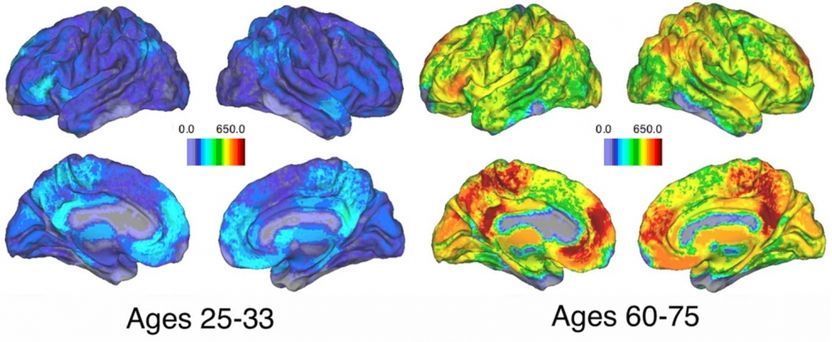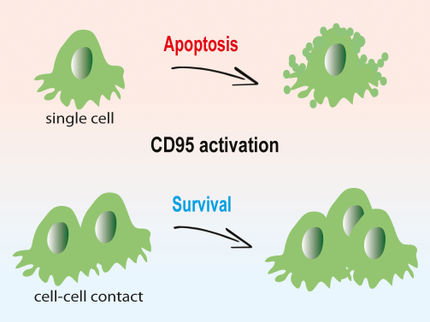New pharmacon allows testicular tumors to shrink
A new active pharmaceutical ingredient may help against severe forms of testicular cancer, which only respond inadequately to other therapies. In mice, the substance kills degenerated cells and allows testicular tumors to shrink. Researchers at the University of Bonn were able to demonstrate this in a recent study. However, first clinical trials are still pending.
Testicular cancer is the most common malignant tumor disease in men between 20 and 40 years of age. It can usually be treated well. In some cases, however, the cancer hardly responds or does not respond at all to treatment. A substance that was originally destined to be an innovative contraceptive is offering new hope in these cases. An experimental drug with the cryptic name JQ1 blocks sperm maturation and was discussed to be a male contraceptive. Instead, it may be suitable for cancer therapy.
JQ1 belongs to a new class of drugs with far-reaching abilities: its members fundamentally influence which genes in the cell are active and which are not. The hereditary material DNA is similar to an extremely long strip of Morse code, on which the assembly instructions for the cellular molecules are found. To fit into the cell nuclei, this strip of Morse code is wrapped around small protein balls at regular intervals – the histones. Histones and DNA together resemble a string of pearls.
However, the histones do not only play a structural role. They also feature chemical tags – called methyl or acetyl groups. These tags signal to the synthesis machinery in the cell whether the strip of Morse code should be read at this point or not. “JQ1 inhibits those proteins that read these histone marks and thus changes the gene activity in the cell,” explains Prof. Hubert Schorle from the Institute for Pathology at the University of Bonn.
The cancer cells react very sensitive to these changes: they activate a suicide program, called apoptosis. “In a testicular cancer mouse model, the tumors began to shrink after administering JQ1,” explains the lead author of the study, Sina Jostes. “In contrast, healthy skin cells seem to tolerate JQ1 very well.”
Especially effective in combination
Besides JQ1, other drugs that alter the marks of the histones are also known. One of these is romidepsin. The laboratory in Bonn was recently able to show that romidepsin is also very effective at fighting testicular cancer cells. Unlike JQ1, romidepsin is already approved for the treatment of patients with certain types of cancer.
“In our study, we treated mice with both JQ1 and romidepsin,” explains Dr. Daniel Nettersheim, who helped in planning and performing the studies. “This way, we achieved a similar effect alike JQ1 or romidepsin treatment alone, but we could reduce the quantities of both substances. Such a combination therapy to treat testicular tumors may be much better tolerated. Chemotherapy-resistant patients could also benefit from this.” However, clinical studies are now needed to move the treatment towards the clinics.
Besides scientists from the University of Bonn, the studies also involved researchers from the University of St. Gallen (Switzerland) and Harvard Medical School (USA).
Original publication
Sina Jostes , Daniel Nettersheim , Martin Fellermeyer , Simon Schneider , François Hafezi , Friedemann Honecker , Valerie Schumacher , Matthias Geyer , Glen Kristiansen , Hubert Schorle; "The bromodomain inhibitor JQ1 triggers growth arrest and apoptosis in testicular germ cell tumours in vitro and in vivo"; J. Cell. Mol. Med.; 2016
Most read news
Original publication
Sina Jostes , Daniel Nettersheim , Martin Fellermeyer , Simon Schneider , François Hafezi , Friedemann Honecker , Valerie Schumacher , Matthias Geyer , Glen Kristiansen , Hubert Schorle; "The bromodomain inhibitor JQ1 triggers growth arrest and apoptosis in testicular germ cell tumours in vitro and in vivo"; J. Cell. Mol. Med.; 2016
Topics
Organizations
Other news from the department science

Get the life science industry in your inbox
By submitting this form you agree that LUMITOS AG will send you the newsletter(s) selected above by email. Your data will not be passed on to third parties. Your data will be stored and processed in accordance with our data protection regulations. LUMITOS may contact you by email for the purpose of advertising or market and opinion surveys. You can revoke your consent at any time without giving reasons to LUMITOS AG, Ernst-Augustin-Str. 2, 12489 Berlin, Germany or by e-mail at revoke@lumitos.com with effect for the future. In addition, each email contains a link to unsubscribe from the corresponding newsletter.
Most read news
More news from our other portals
Last viewed contents
Urachal_cancer

Tiny microbes could brew big benefits for green biomanufacturing - The discovery could reduce greenhouse gas emissions from the manufacturing of fuels, drugs, and chemicals

Missed Connections






















































